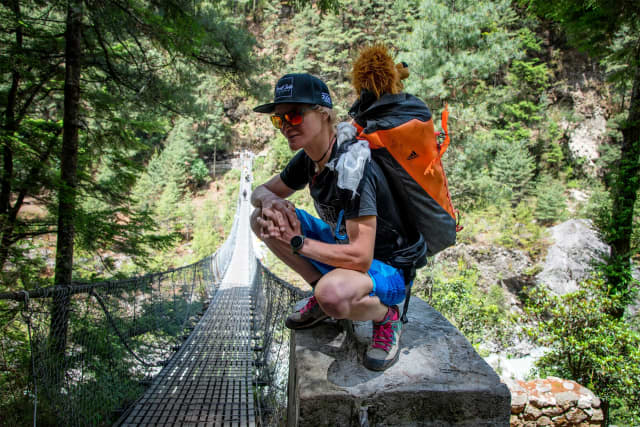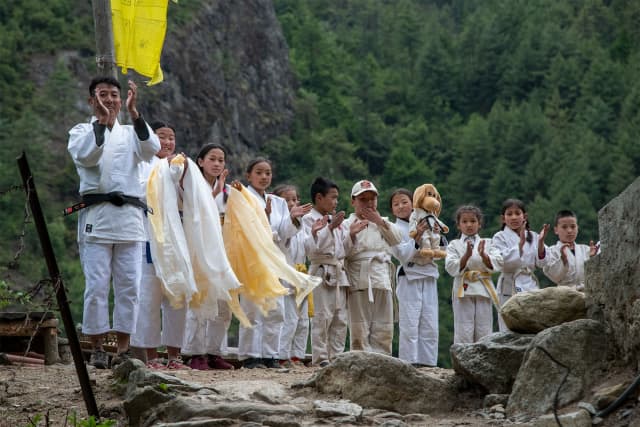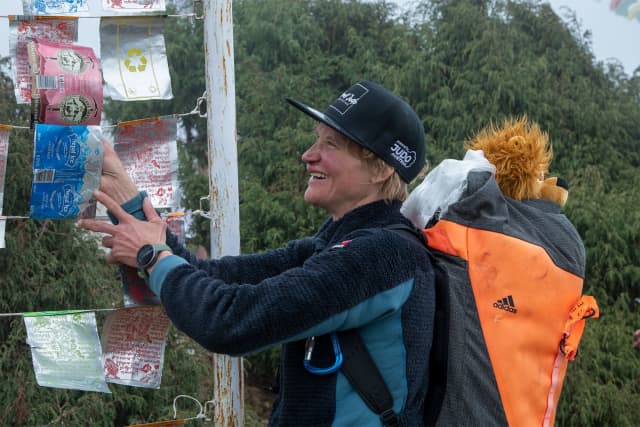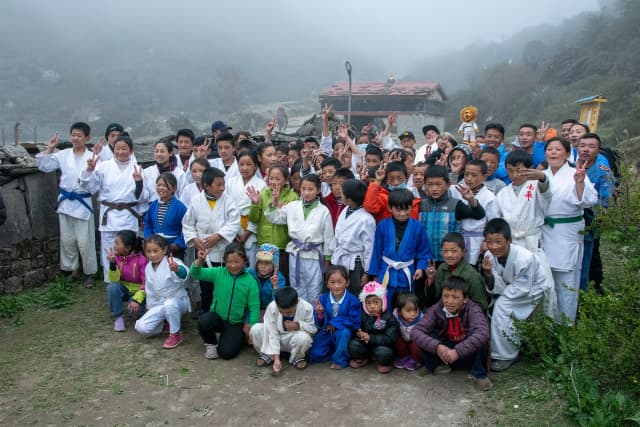All this was made possible thanks to the touch of craziness of an athlete who for years gave her all on the international judo circuit, Sabrina Filzmoser, and who today continues to open her heart to others using the values of judo as a tool for development and social emancipation.
Talking about a touch of craziness has absolutely no pejorative connotation, quite the contrary, because the world belongs to those who decide to do things differently. For ordinary mortals, this desire to surpass oneself for the common good is often akin to unconsciousness, when in fact it is an ability to see what is beyond the horizon and seek out the best that human beings have to offer the community.
For weeks, we have transcribed, as faithfully as possible, the adventures of Sabrina which began at the edge of the sea and ended at the top of Everest. Yet, by following in her footsteps it can be understood that Forever Everest is not over; this project is only in its infancy.
To be convinced of this, if still required, you must first see her evolve in sumptuous landscapes which offer at each bend on the steep Himalayan paths, a new face. Sabrina is simply in her element, an element that she has integrated into her life since her early years in Austria and that she has continued to develop. But above all, you have to watch her interact, not only with the environment but also with the people of the mountains, whether Sherpa or not, to whom she gives so much and who give back to her.
Not an hour has passed on the way from Lukla at 2700m to Khumjung at 3800m altitude without her having to stop to simply say hello or to start a chat for a few minutes, with all these people she has come to know, appreciate and recognise for what they are: human beings who deserve our full consideration.
So maybe we are entitled to ask what is the link with judo? The answer is obvious: it is the values of judo that brought Sabrina here and it is these same values that make the life of local communities more harmonious. It is important to say here that it is in no way a question of proselytism through sport and in this case through judo. To be convinced of this, it is enough to note that despite the challenges of life in this region, sports grounds are already present and are an integral part of the lives of thousands of young people. Sport indeed has this capacity to be a universal language which, beyond physical effort, is the cement of life in society.
While life is so complicated when you live at 4000m altitude in villages that have never heard the sound of a vehicle, practising a sport, judo in this case, has only benefits. There is obviously the physical dimension, although these young mountain dwellers have qualities of endurance and resistance that are already above normal. There is though, above all, the human, philosophical and moral dimension that judo can bring.
In a few decades and especially in recent years, life has been turned upside down in the Himalayas. Essentially rural and agricultural, it turned to tourism. Still highly isolated, entire villages have seen an influx of trekkers and mountaineers, often focused on their personal performance without much sympathy for those whom have always lived in the region. The change may seem trivial but it is not.
As a fatal consequence, quite recently, the whole community has been impacted, probably more here than elsewhere, by the global pandemic. Not only was the disaster health-related, but it was also economic, because no more tourists could come and admire the landscapes. Another major challenge, in a world of excess, is climate change. When we are lucky enough to live in temperate zones, we can sometimes complain of a little too much rain or a little too high temperature. Here around Everest, the consequences of these disruptions are catastrophic and could change the lives of the inhabitants profoundly in a very short time. In this context, which does not necessarily lead to optimism, Sabrina's expedition offers possibilities for hope.
Concerning the environment, as IJF Climate Ambassador, she took advantage of her crossing of India by bike and then Nepal on foot to promote a lifestyle more in line with nature. It is certain that this is only the beginning of a process that promises to be long in a world that urgently needs it, but you have to start somewhere.
Faced with the social disorders and the consequences of the profound changes mentioned above, which the local populations must face, the respect and friendship as well as the mutual aid and prosperity carried by Forever Everest and by its protagonists can only bring peace of mind, without which entire social systems could collapse.
It's not judo that will change everything. It will not be the miracle solution. This would go against the very modesty that every judoka must demonstrate but the Sherpa society, taken as a reduced model of what is happening on a global scale, cannot do without attaching itself to these values which we put forward so much and which here and elsewhere will guarantee the advent of a fairer society. It is in this that judo must and can play a fundamental role, with respect for everyone, without any discrimination.
In three days, we learned a lesson in humanity. This incorporates resilience, surpassing oneself in the service of others and honouring one's word, to name but a few aspects revealed by hours of walking. Arrived in Khumjung, we are no longer the same. We were aware that where there was desire, there was achievement. The 90 young judoka who welcomed Sabrina and our delegation are living proof of this, proof which is not only symbolic, but is also very concrete and factual.





